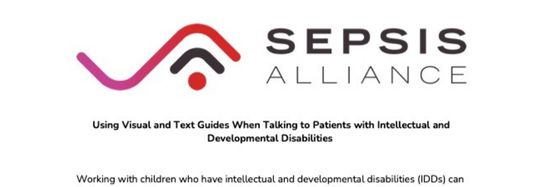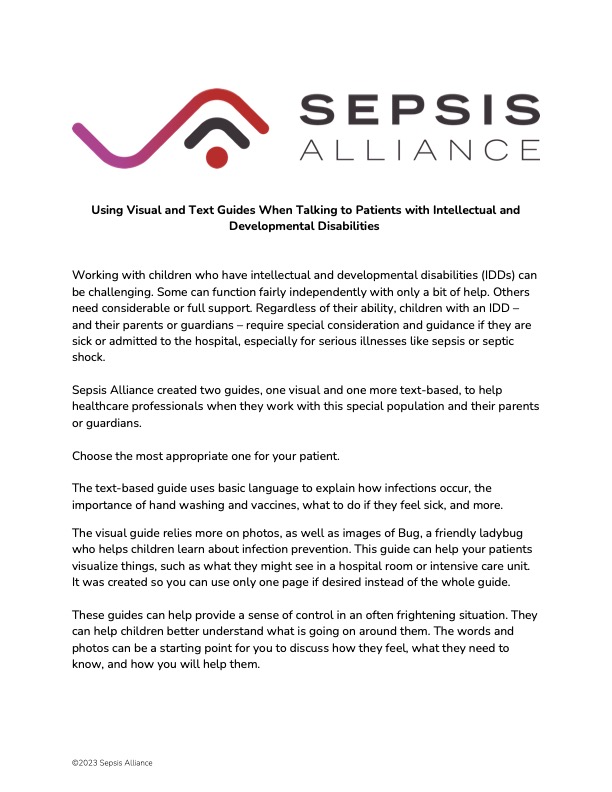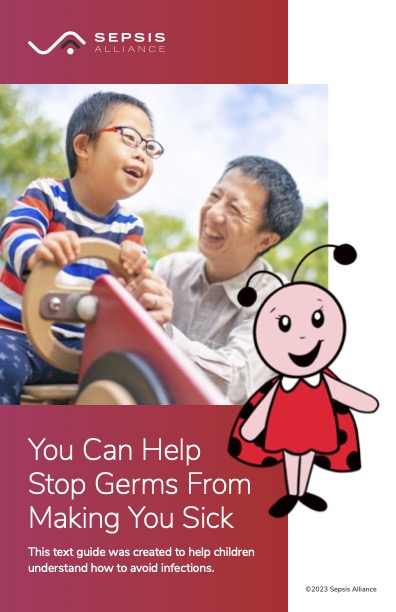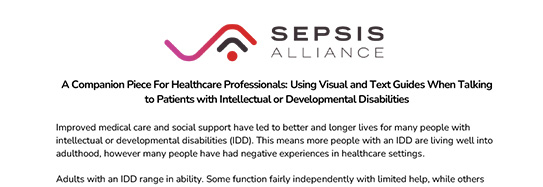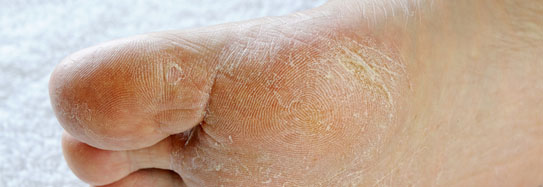People with intellectual and developmental disabilities have varying levels of ability. Some adults manage independently with support when needed, while others need complete care. Some children can go through the school system with support, while others may need more specialized care. But what many have in common is that they may have difficulty obtaining good quality healthcare.
According to the National Institutes of Health, intellectual and developmental disabilities (IDD) affect “the trajectory of the individual’s physical, intellectual, and/or emotional development. ”
An IDD itself doesn’t cause illness, but it can lead to situations that put people at higher risk of developing certain conditions, including infections, which can lead to sepsis.
Sepsis, which was often called blood poisoning, is the body’s life-threatening response to infection. Like strokes or heart attacks, sepsis is a medical emergency that requires rapid diagnosis and treatment.
Suggested Citation:
Sepsis Alliance. Sepsis and Intellectual & Developmental Disabilities. 2024. https://www.sepsis.org/sepsisand/intellectual-developmental-disabilities/
Updated January 19, 2024.

